Apple’s latest fall iPhone event — “Wonderlust” — is nearly here. Four new iPhones and a couple of Apple Watch models are expected to take center stage when the company showcases its latest products. USB-C should be in the spotlight as Apple changes its charging ports in response to new EU regulations. Although nothing is set in stone until Tim Cook takes the stage on Tuesday, we’ve gathered the most probable leaks and rumors ahead of Apple’s September 12 event.
iPhone 15 and iPhone 15 Pro
No matter what else Tim Cook and company reveal, new iPhones are practically guaranteed to dominate the day’s headlines. We can expect a high-end iPhone 15 Pro and iPhone 15 Pro Max, along with a standard iPhone 15 and iPhone 15 Plus. There was an earlier report that Apple may rebrand the Pro Max model as “iPhone 15 Ultra” this year, but it isn’t clear if that’s still on the table.
First, screen sizes will likely stand pat. That means 6.1-inch displays for the iPhone 15 and 15 Pro and 6.7-inch screens for the iPhone 15 Plus and iPhone 15 Pro Max (or “Ultra”). ProMotion, Apple’s branding for 120Hz variable refresh rate displays, will almost certainly remain exclusive to the top-tier models.
A change many foresee is Lightning cables becoming obsolete. Over a decade has passed since switching from 30-pin connectors to Lightning, and European regulations are forcing Apple to swap ports again — this time to USB-C. “Obviously, we’ll have to comply” with the EU’s requirements, Apple VP Greg Joswiak confirmed in an interview with the WSJ last year. Although Apple could wait for next year’s iPhone launch to make the EU’s deadline, leaks and well-sourced insiders indicate almost unanimously that this year’s iPhone 15 will be the one to kick off the USB-C iPhone era.
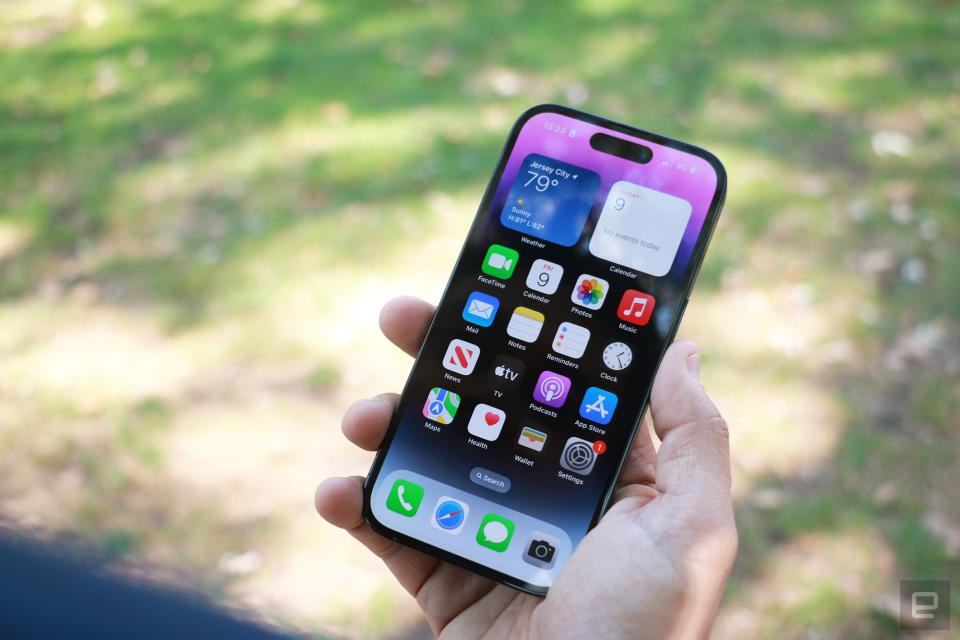
However, connected Apple analyst Ming-Chi Kuo predicts only the higher-end iPhone models will see faster USB-C data transfer speeds. Kuo believes only the two pro models will support “at least USB 3.2 or Thunderbolt 3” high-speed wired connections, while the two standard models (iPhone 15 / 15 Plus) would use slower USB 2.0 speeds, the same as Lightning. At least some new models could also support faster (35W) charging speeds, although (predictably, some might say) you could need a proprietary Apple-made adapter to power up at those rates.
Dynamic Island, the display cutout that Apple launched on the iPhone 14 Pro / Pro Max, is expected to carry over to all four models in 2023. A replacement for the “notch” on older full-screen iPhones, Dynamic Island is a floating black pill-shaped section just below the top of the screen. It not only masks the phone’s front camera and Face ID sensor, but it can also flash alerts, animations and shortcuts for tasks like driving directions, timers or music. Apple design VP Alan Dye tidily summarized that Dynamic Island can “display alerts, notifications, and ongoing operations in real-time without seeing the boundary between hardware and software.”
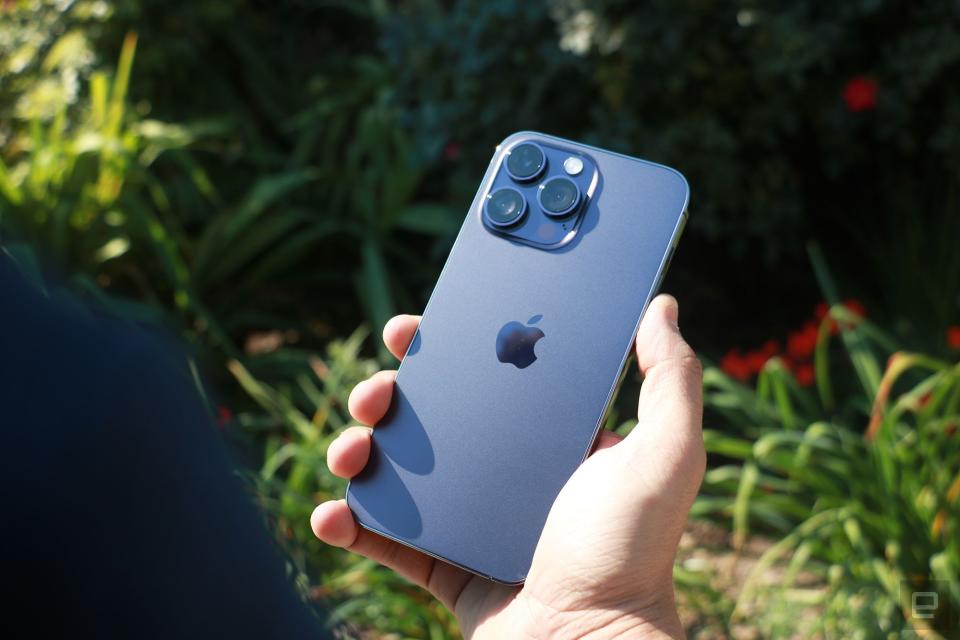

Stainless steel may go the way of the Lightning port, as the iPhone 15 Pro and Pro Max are rumored to switch to titanium frames. The material upgrade could make the new pro lineup “stronger, lighter and more premium,” as Bloomberg’s Mark Gurman described in July. He said the titanium used in high-end Apple Watch models was “a test for bringing that material to its highest-volume device.” Although the phones are expected to keep the same frosted glass back, their corners could be more rounded than in previous models. In addition, Apple may drop the lineup’s gold hue for a “titan gray” colorway.
Thinner bezels are expected to accompany the pro series’ titanium frame. Apple is reportedly developing the iPhone 15 Pro / Pro Max displays with a process called low-injection pressure over-molding, or “LIPO.” First used in Apple Watch Series 7 manufacturing, Gurman reported that the technology could reduce the pro series’ bezels to 1.5 mm, down from the 2.2 mm ones found in current models.
The iPhone 15 Pro series could also have an Action Button like on the Apple Watch Ultra. The customizable toggle would replace the mute switch on the upper-left side of the pro-tier iPhones. Possible uses for the Action Button (based on code uncovered in iOS 17) include launching the camera, lighting the phone’s flashlight, activating Focus, opening accessibility features or standing pat with the standard mute function. Sources indicated Apple initially wanted to swap in haptic solid-state ones for the iPhone’s physical volume and power buttons, but the company reportedly canceled the feature after encountering “unresolved technical issues before mass production.” So expect standard volume and power / sleep buttons.
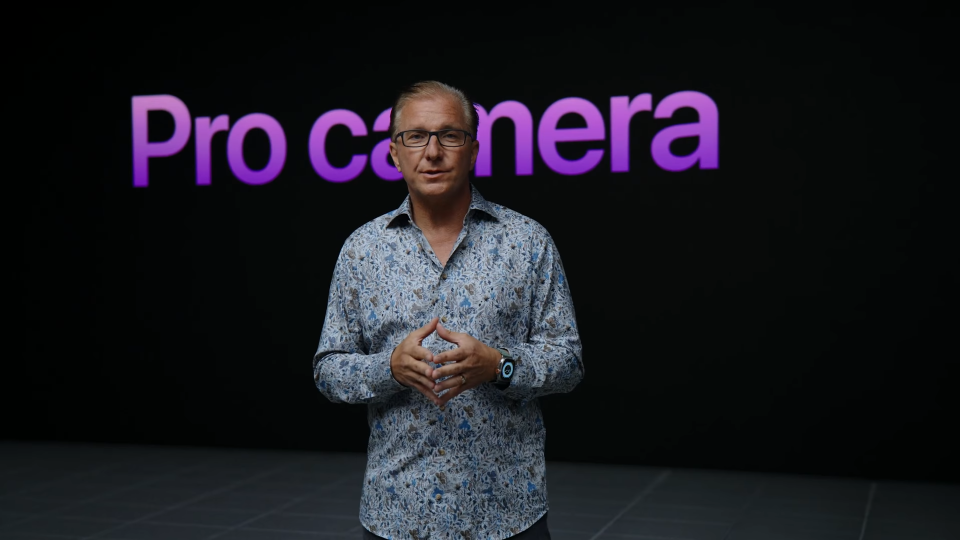

The most likely camera upgrade is a new periscope lens exclusive to the iPhone 15 Pro Max (or Ultra). It would use a prism to bend or fold light captured by the sensor, leading to an optical zoom of 5x to 6x without making the phone beefier. The iPhone 14 Pro series supports up to 3x optical zoom.
One of the surest bets about a new flagship iPhone’s features is a faster, next-generation chip. The iPhone 15 Pro and Pro Max are rumored to use a 3nm chip, likely called the A17 Bionic. It would provide performance boosts (and maybe longer battery life). Meanwhile, the iPhone 15 / 15 Plus pair is rumored to repeat what the company did in 2022: recycling last year’s high-end chip. That means the iPhone 15 / 15 Plus would use the A16 Bionic, found in the iPhone 14 Pro.
If recent years are any indication, the new iPhones would be available for pre-order the Friday after the Apple event, with shipments and general availability kicking off a week later. Although this year’s models may be more expensive.
Apple Watch Series 9 and Apple Watch Ultra
This could be a minor year for Apple Watch updates. The primary hardware change in the Apple Watch Series 9 is rumored to be an S9 chip, marking the product’s first real processor upgrade since 2020. Gurman reported that the S9 will be based on the A15 chip that debuted in Apple’s iPhone 13 (2021) lineup. The S9’s full details aren’t known, but it’s rumored to move from a 7nm manufacturing process to a denser and more efficient 5nm or 4nm one. Expect performance boosts and (perhaps) longer battery life.
Reports suggest the new Apple Watch will otherwise be a largely ho-hum update, with Gurman saying this year’s model won’t offer any significant design changes or new features. A pink color option and Bluetooth 5.3 support are possible changes for the new model. Regardless, watchOS 10 — arguably the biggest software update in the wearable’s history — will likely stand as the biggest advancement for the Apple Watch in 2023.
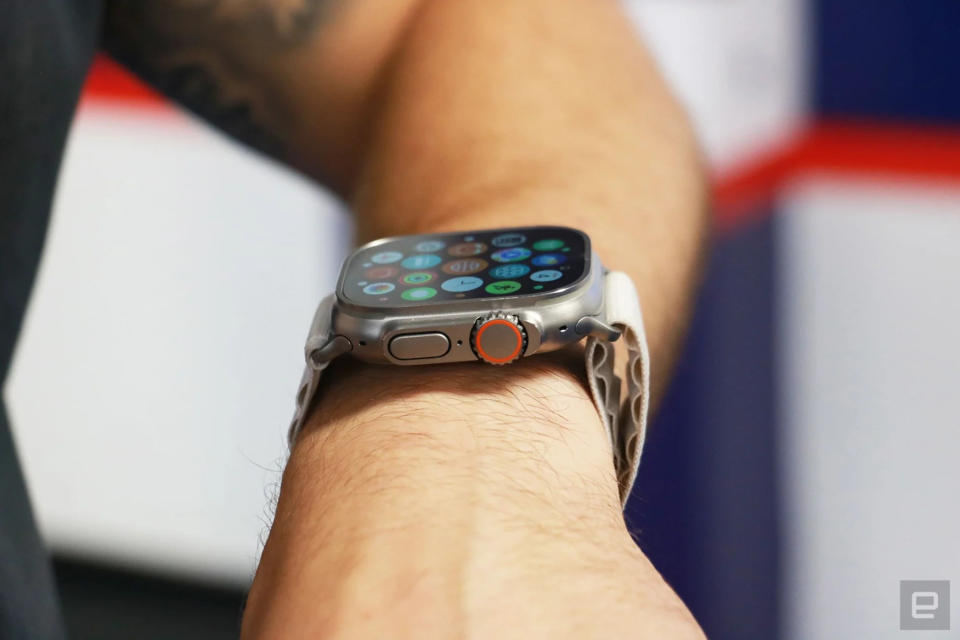

As for the Apple Watch Ultra, it’s also expected to receive an incremental 2nd-generation update. In addition to the S9 chip, a new Apple Watch Ultra could add a black titanium case. The current model ships in a “natural” color, expected to return alongside the darker option.
AirPods
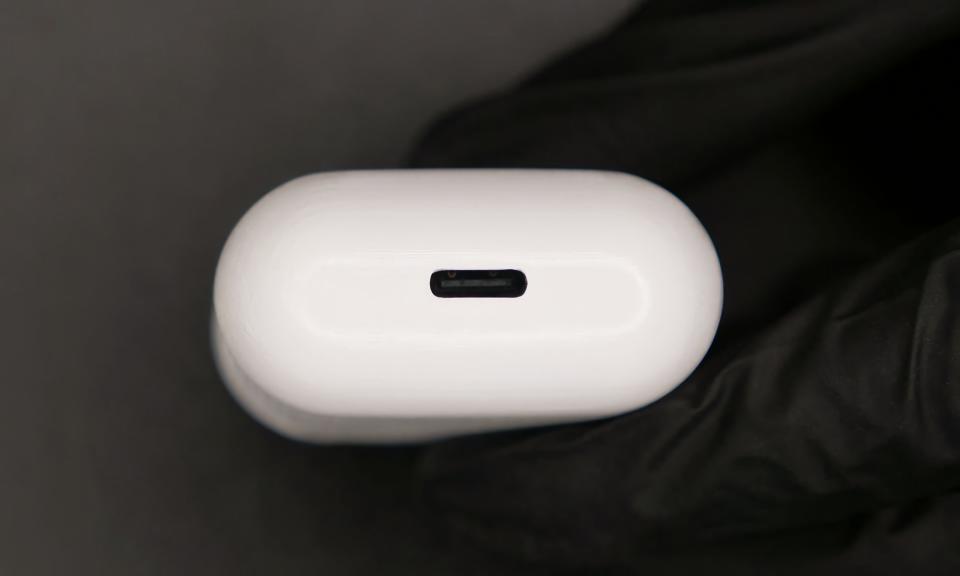

You probably want to keep your AirPods expectations in check, as the company’s march away from Lightning and towards USB-C will likely be the only headphone upgrades at this year’s Apple event. The company will reportedly launch “new” versions of the current AirPods models, with charging cases that use USB-C instead of Lightning serving as the only difference.
Rumored changes to the AirPods lineup down the road include body-temperature sensors, accessibility features for people with hearing disabilities and a potential price drop for the entry-level model. But we won’t likely see any of that on Tuesday.
Software
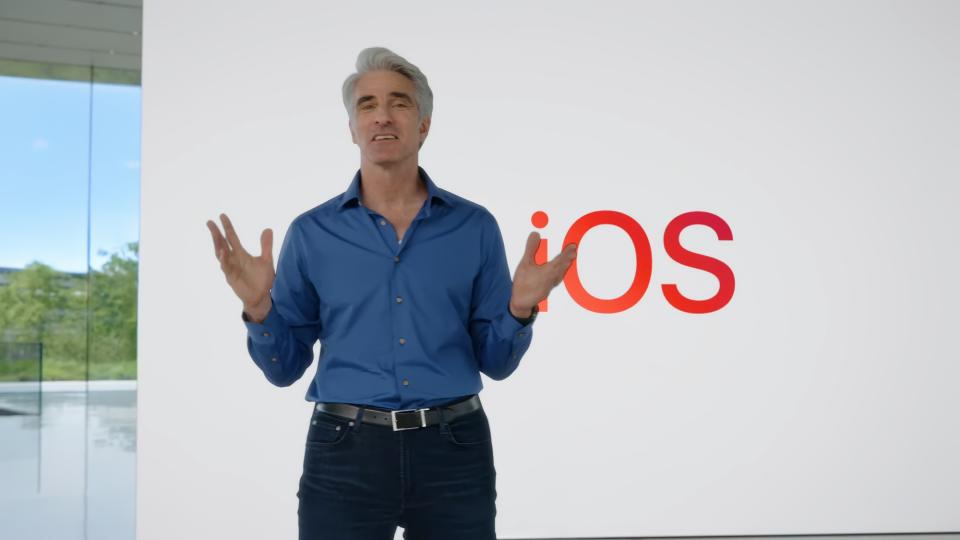

You can expect the event to bring more details about Apple’s first big software updates of 2023: iOS 17, watchOS 10 and (possibly) iPadOS 17. Apple announced the operating systems at WWDC 2023, and their final versions should become available to the public sometime between the event and the iPhone 15 launch. Following recent years’ patterns, macOS Sonoma will likely launch in October — with iPadOS 17 joining if it isn’t included alongside iOS 17. A potential October Apple event could consist of new iMac, MacBook Air and 13-inch MacBook Pro models running the M3 chip.
iOS 17 includes a new StandBy mode, voicemail transcriptions, FaceTime video voicemails, contact posters, NameDrop and new in-line predictive text suggestions (among other additions). Meanwhile, watchOS 10 is arguably the platform’s most significant update since the wearable’s 2015 launch. The new software changes the Apple Watch’s fundamental control scheme: The side button now activates Control Center (instead of recent apps or the dock), and twisting the watch’s Digital Crown from the watch face scrolls through a customizable stack of glanceable widgets.
You can read more about the upcoming software in Engadget’s previews of iOS 17, iPadOS 17 and watchOS 10 coverage.






